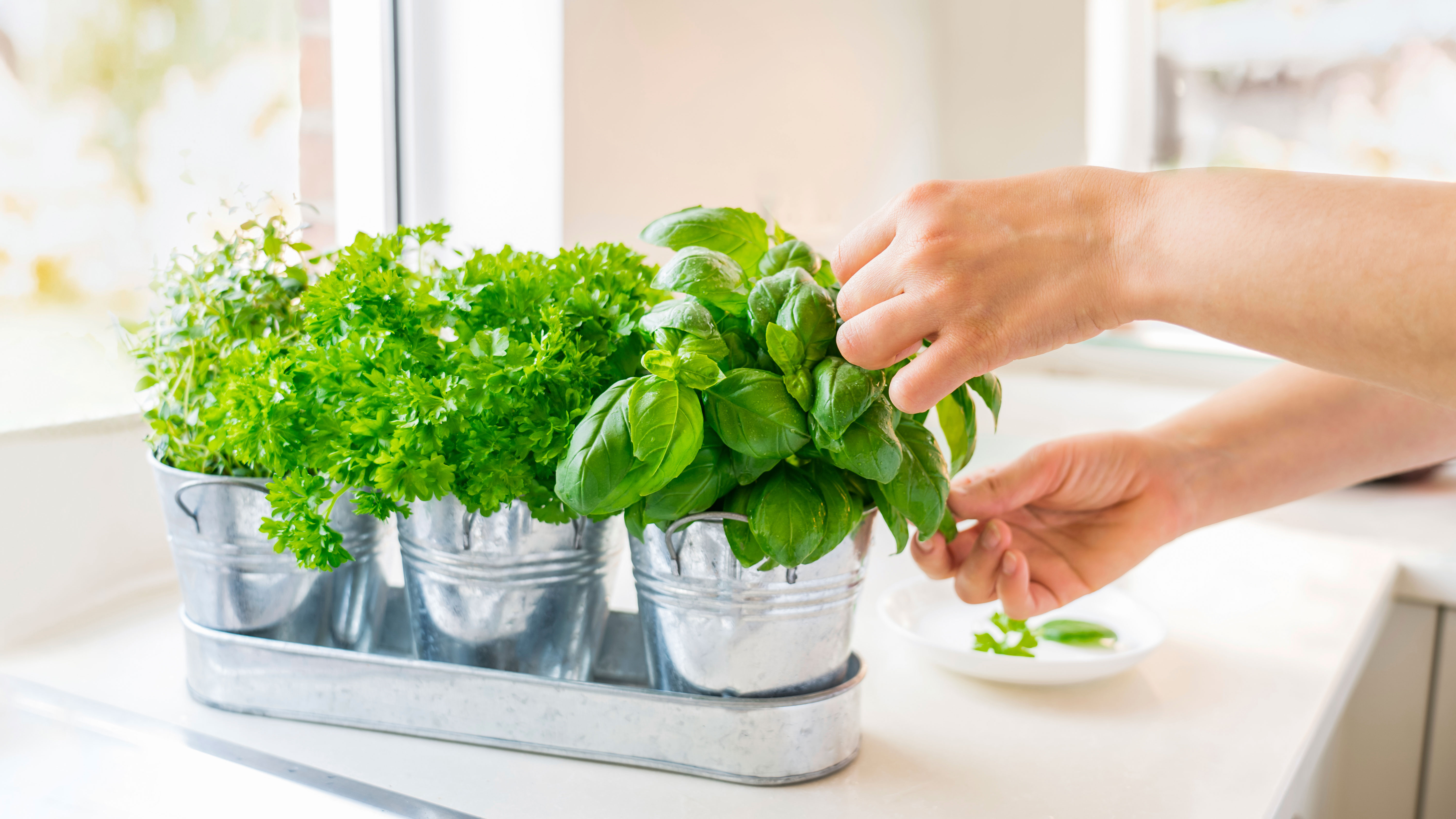When to harvest basil – for a delicious addition to recipes
Follow this guide on when to harvest basil so you can enjoy a plentiful and flavorful supply


Discovering when to harvest basil can make a huge difference to the quality and size of your crop. Get the timing right and you can be rewarded with these delightfully fragrant and flavor-packed leaves for weeks and months on end.
Knowing how to harvest basil will also ensure you can continue to reap the rewards of this tasty herb.
‘Basil is often called the king of herbs based on the Greek word for monarch. The French also refer to it as herbe royale. And most keen cooks would agree that it is a leader amongst herbs for its fragrance, charisma and addictive taste,’ says Judith Hann, in her book Herbs: Delicious Recipes and Growing Tips to Transform Your Food.
Whether you raise your own from seed or buy a young plant from the store as part of your herb garden ideas, knowing the best time to begin picking the leaves of basil can make a big difference to the overall health of the plant.
When to harvest basil
A tender annual and real sun lover, basil thrives in well-draining soil. To grow basil, choose a sheltered spot away from any winds, that gets around six to eight hours of sunlight a day but beware that strong direct can scorch the delicate leaves, so you may need to provide some shading.
If grown from seed, it usually takes three to four weeks for each plant to reach 6 to 8in (15 to 20cm) and grow six sets of leaves. This is the perfect stage to start harvesting basil.
When it comes to when to harvest basil, organic herb grower Jekka McVicar advises, ‘Begin harvesting from late spring; pick the top young leaves to promote more growth and harvest in the morning when leaves are at their juiciest.’
Design expertise in your inbox – from inspiring decorating ideas and beautiful celebrity homes to practical gardening advice and shopping round-ups.
She adds, ‘Fresh basil is best used straightaway, but to preserve this herb infuse in oil or vinegar or make into sauces and butters.’
When to pick a small amount of basil
If you only need a few leaves to garnish a salad or mix into a pasta dish, then just pick them as and when needed. Use a sharp pair of scissors to snip cleanly from the stem. You can also nip off the tips, cutting just above the point where two leaves meet.
Removing the flowers is also a great way to add interest and color to a dish. It will also prevent the plant from setting seed and encourage fresh new growth.
When to harvest large amounts of basil
To keep your plant in top condition and to encourage it to form plenty of bushy stems, aim to harvest around a third of the growth every month. Prune basil by cutting back to the point just above a pair of leaves so new side shoots will form. This will help the plant develop an even, rounded shape.
Try to harvest consistently throughout the growing season to provide a constant supply of fresh and flavor-packed leaves.
Should you pick basil leaves from the top or bottom of the plant?
Pick basil leaves from the top of the plant when you are harvesting. This way, the plant should become wide and bushy rather than growing tall. Pick basil leaves from the bottom of the plant and it can become lanky as well as less productive and less healthy.
Can you harvest basil too early?
It is possible to harvest basil too early, but even if it’s grown from seed, you won’t have a long wait. The plant can take just three to four weeks to grow six sets of leaves and reach a height of 6 to 8in (15 to 20cm). Once it reaches this stage, you can begin to harvest basil.

Journalist Jill Morgan has spent over 20 years writing and editing gardening, interior and property features. Titles she has worked on include The English Home, House Beautiful, Ideal Home, Houzz and Modern Gardens and she writes regularly for H&G as a Contributing Editor. Whilst she is a dab hand at renovation projects and DIY, she is happiest when out digging in the garden or planning a new border.